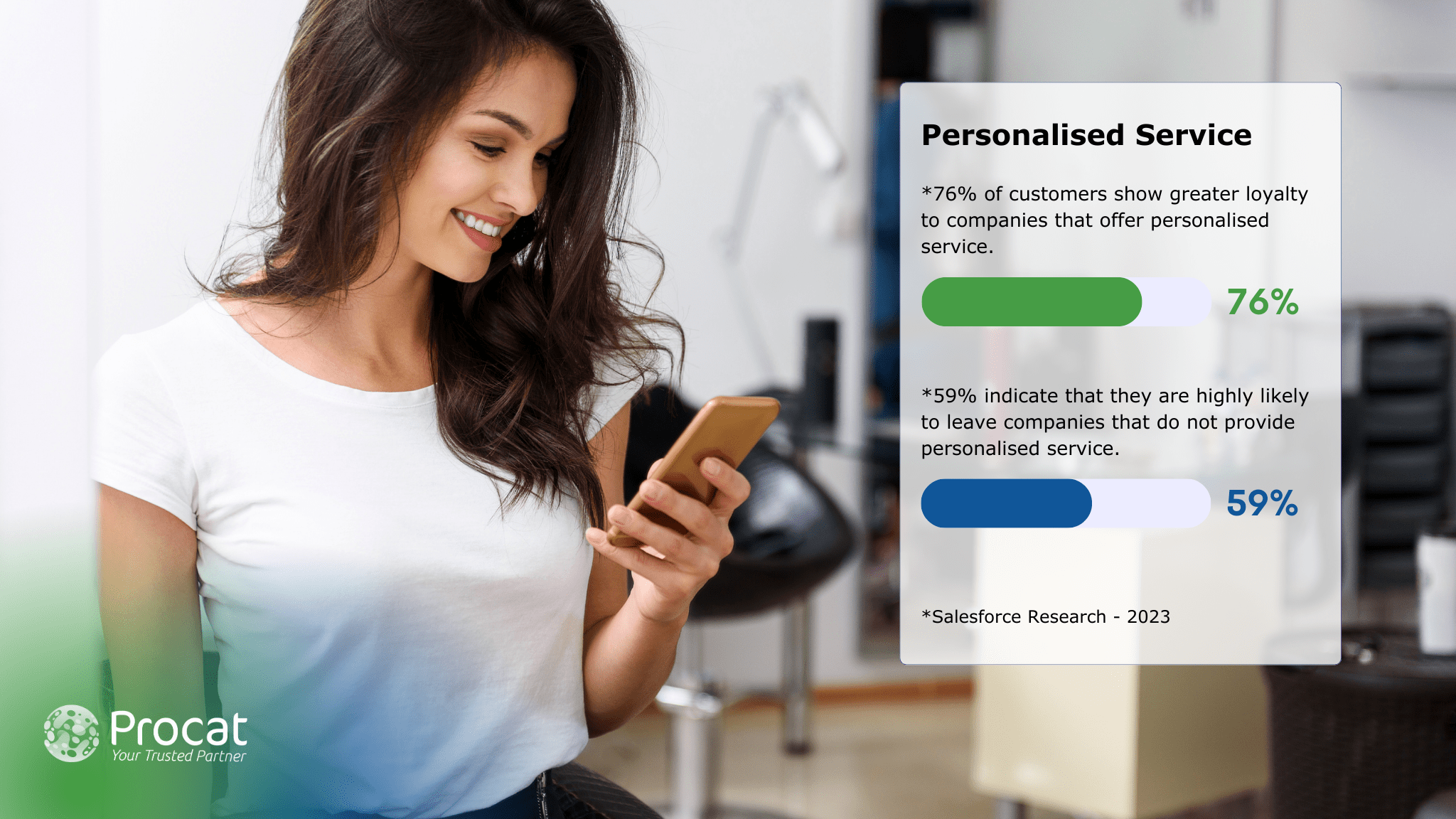Personalized service is at the core of modern customer experience strategies. Offering customized services according to customers’ expectations and needs is one of the most effective ways to increase customer satisfaction and loyalty.
According to a 2023 survey by Salesforce, 76% of customers show more loyalty to companies that provide personalized service, and 59% are likely to leave companies that do not offer customized services. This demonstrates that offering services tailored to individual needs provides a competitive advantage for businesses.

1. Effectively Using Customer Data
The first step in offering personalized service is collecting and analyzing customer data. By tracking customer behaviors, preferences, and past interactions, you can provide customized services to each customer. CRM (Customer Relationship Management) systems play a significant role in managing and analyzing this data. For instance, in the retail sector, Amazon’s recommendation system offers personalized product suggestions based on customers’ purchases and search history. In the financial sector, banks can provide personalized credit card and investment recommendations based on customers’ spending habits.
2. Personalized Communication
Addressing customers by their names and sending personalized messages based on past interactions enhances the customer experience. In email marketing campaigns, you can increase engagement by offering content tailored to customers’ interests and shopping history. For example, in the e-commerce sector, Netflix offers personalized series and movie recommendations based on users’ viewing history. In the healthcare sector, hospitals and clinics can send personalized care plans and follow-up messages based on patients’ medical history.
3. Customized Product and Service Offers
Offering special product and service deals to customers is an important aspect of personalized service. By using customer segmentation, you can provide special campaigns and discounts tailored to different customer groups. This approach makes customers feel special and increases their loyalty. In the food and beverage sector, Starbucks’ loyalty program offers customized drink recommendations and personalized campaigns based on customers’ preferences. In the automotive sector, car manufacturers can provide personalized maintenance and repair services based on customers’ needs and preferences.
4. Improvements Based on Customer Feedback
Regularly collecting customer feedback and analyzing it to improve your services is a crucial way to offer a personalized customer experience. By considering customer feedback, you can provide services that meet their needs and expectations. For example, in the fashion sector, Zappos continuously improves its products and services based on customer feedback and offers personalized solutions. In the telecommunications sector, operators can optimize their packages and services based on customer feedback.
5. Omnichannel Customer Experience
Providing consistent and personalized experiences across different communication channels increases customer satisfaction. By offering personalized services through various channels such as phone, email, live chat, social media, and mobile apps, you can enhance the customer experience. In the beauty sector, Sephora offers an omnichannel experience by integrating customer data from its stores and online platforms to provide a personalized shopping experience. In the financial sector, banks can offer consistent and personalized services through internet banking, mobile apps, and branches.
6. Use of Artificial Intelligence and Machine Learning
Artificial intelligence and machine learning play a significant role in offering personalized services to customers. AI-based chatbots and virtual assistants provide quick and accurate responses to customer requests, offering personalized service. Additionally, machine learning algorithms analyze customer data to predict future customer behaviors and offer personalized recommendations. In the music and entertainment sector, Spotify creates personalized playlists based on users’ listening history. In the travel sector, hotels and airlines use AI to analyze customers’ travel preferences and offer personalized travel recommendations.
These approaches help businesses gain a competitive advantage by meeting and exceeding customers’ needs and expectations.

